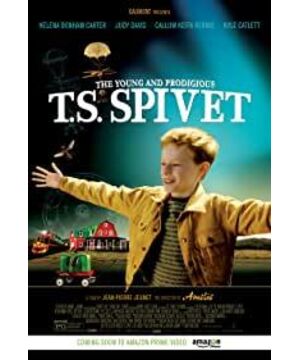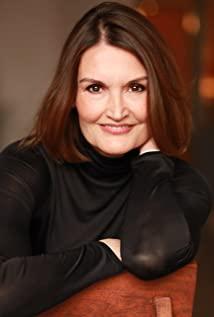The film takes place in the United States. In a journey from west to east (running away), from the perspective of a genius boy TS Spivey in a western farm, the film shows the audience the magnificent and beautiful western style and the bizarre eastern city. This is a drama that combines road movies and family healing. The film is clearly divided into three parts: West - Transcontinental - East. The character setting is full of Wes Anderson-like childishness and fantasy. A taciturn cowboy father, an insect-classifying paranoid mother, a simple and honest little cowboy brother, a beauty pageant-minded sister, and a lonely Frankenstein TS. The alienation of the family and the trivialities of life on the farm made this young man full of formulas and graphics full of yearning for the outside world, while the unexpected death of his younger brother and Washington's call undoubtedly played important catalysts, loneliness and helplessness, as Everyone's childhood is mired in an inexplicable fear of being abandoned. TS feels that his family doesn't love him anymore. The 10-year-old yearns for the comfort of the wider world, so he decides to go alone. In the eyes of the naive and intelligent TS, the world can be changed by science, and there is a side that he cannot understand. This side is the sophistication of the adult world. Along the way, he encountered chasing shops and inspections, and also encountered friendliness, and finally reached the academy as he wished. In addition to the adventures in the "road drama", there is also a review of the family fragments through the diary. The film always intersperses the family love in each paragraph. From the adventure drama to the completion of emotional redemption, it seems to be a wonderful turning point, but it is full of meticulous foreshadowing. . In the end, through two decisive scenes - TS's speech and program recording, the stories that happened in the west were revealed one by one, and we knew the whole picture of the family tragedy. Surrounded by "sudden" happiness.
What happened in the east constituted Genet's brilliant satire of the modern city. Those academic celebrities who don't laugh but seem to be complacent as "guardians" and "brokers" and try to use TS as a cash cow, the administrative officer of a certain college, the rude but well-mannered show host in suits - people who are greedy for profit, Looking up from a child's perspective, there is a tall and weird mechanical sense, but under the indirect gaze of the audience, the hypocrisy has no way to hide. TS may not have been able to see through the ugliness of these adult survival rules precociously, but he accurately analyzed the difference between fake smiles and real smiles through their facial muscle lines. The clever teenager often utters some surprising lines that perfectly blend scientific instincts with the sadness of leaving home, such as "What's special about water droplets is that they always find the path of least resistance, and for humans, It's just the opposite." "Nature has disappeared, and every inch of land in sight has been replaced by man-made structures that obey geometric principles. Humans have created so many right angles, but their behavior is complex and absurd"—— These elegant and cold "feelings" are not contrived at all because he is a young child. On the contrary, it almost makes us as adults feel ashamed of being killed in seconds.
Compared with the delicate plot arrangement and characterization, the film's performance is also outstanding. Almost all of the key elements of the hot film can be found in it, such as yellow-green tones, children's perspectives, explanatory details in the form of pictures, acrobatic art-like supporting groups of "each showing their talents", baroque and complicated art design, etc. The film's polish on western scenery and family scenes makes every frame look like a colorful oil painting, which is amazing. It is these "ulterior motives" details that make the popular plot and the three views without suspense become fascinating and interesting. This style has formed a stable aesthetic interest since the beginning of Genet's film career. In Foutaises, a seven-minute short in 1989, his protagonist's attention to detail and grotesque was shown with quick edits, such as "I love the months after summer vacation, Open the book and find the sand between the pages" etc. In "The Strange Journey of Young Spivey", Genet has tried his best to avoid this kind of emphasis on "likes and dislikes" that is easy to fall into boredom, and he completely handed over the right to speak to a kind, naive, intelligent A 10-year-old boy asked TS to observe the world with a two-dimensional graphic analysis method, and personally played a two-dimensional graphic while wandering. This sense of comedy in the absurdity is what Genet is striving for. His meticulous attention to detail reminds me of another fantasy master: Wes Anderson. The same obsession with photography, editing, retro mood, and wild imagination gives them a certain aesthetic similarity. Japanese director Tetsuya Nakajima is also a fan of highly saturated pictures and out-of-control plots, which may be related to the fact that they all started out with commercials (imagination, creativity, and detail control). Of course, there are many differences in the content, attitudes and feelings of their works.
For the audience, a filming rhythm of about three or four years is more appropriate for Genet's films. We occasionally need this naughty and decent little refreshment to regain the warmth that has been broken by too many people.
View more about The Young and Prodigious T.S. Spivet reviews











